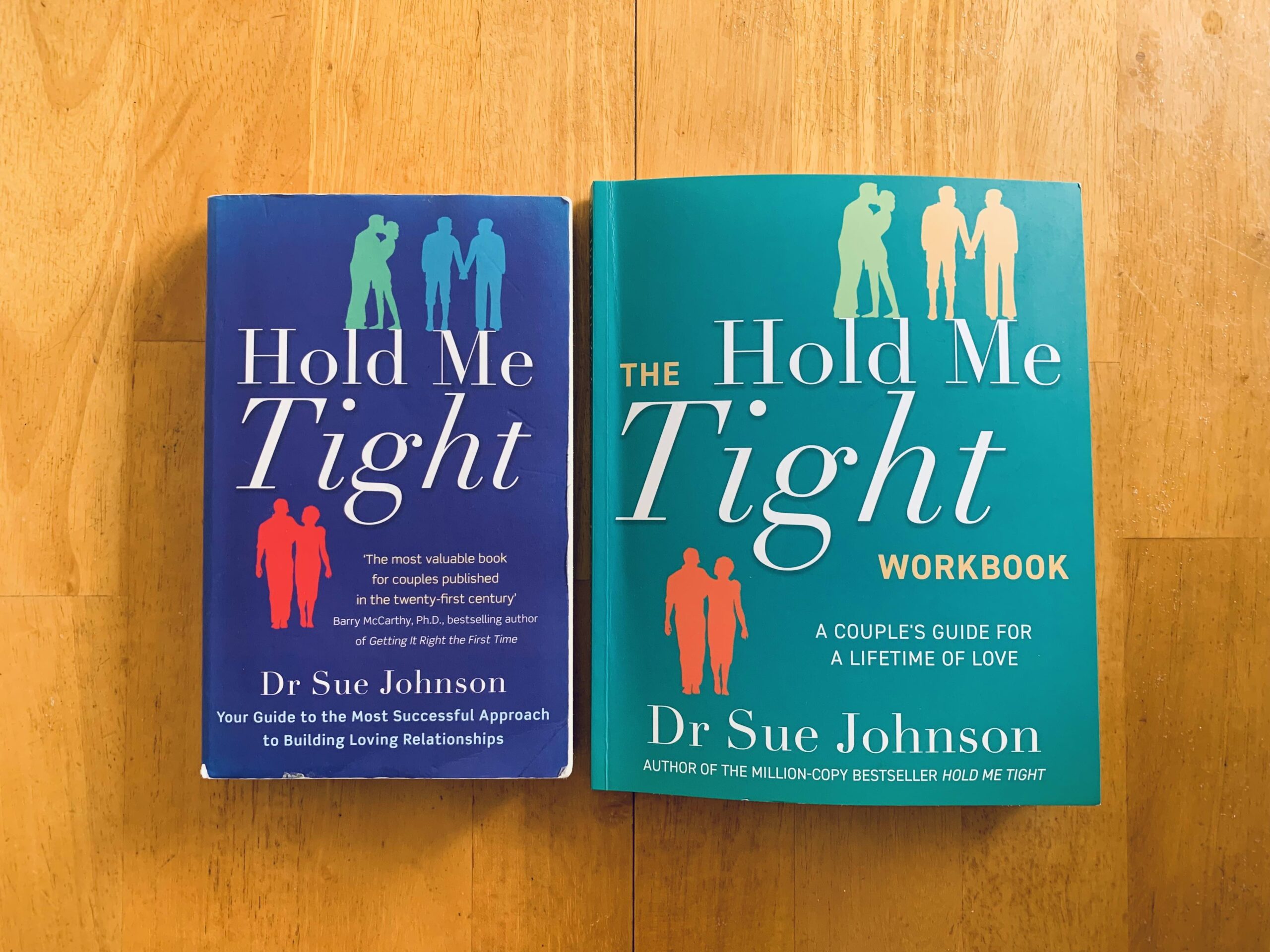Welcome to a series of relationship exercises designed to strengthen your emotional bond with your partner using the Hold Me Tight Workbook A Couple’s Guide For a Lifetime of Love by Dr Sue Johnson. As Sue Johnson writes, ‘Love relationships are not bargains; they are emotional bonds based on our innate need for safe and emotional connection.’
GETTING INTROSPECTIVE
Attachment theory underpins the vital role our loved ones play in providing us with a sense of safety and security in our lives. When emotionally distant or unresponsive, we may experience feelings of isolation and helplessness, triggering emotions like anger, sadness, hurt, and fear. Fear triggers the amygdala, the part of our brain that detects danger, and is a natural response that activates when our relationship is threatened. In this state, our actions may become reactive and impulsive, resulting in two common patterns: demanding or withdrawing.
These responses are unconscious and may give us temporary relief, but if they persist, they can create a cycle of insecurity that drives partners apart. As both partners become defensive, they start assuming the worst about each other and their relationship, leading to a lack of safety in their relationship. This delicate dance of panic and fear requires partners to move in sync, or else they risk stepping on each other’s toes.
To better understand your own steps in this dance, try this introspective journal exercise from Dr Sue Johnson. By becoming aware of your individual responses, you can start identifying and addressing the dynamics of your relationship with your partner.
Journal Exercise
Our fears are wired into our brains. Everyone has them. Can you pinpoint or identify your fears? Listen to the feelings you have, and find, at the core, any fear or anxiety that involves being rejected or abandoned by your partner. To help you get in touch with your internal experience, here are a few of the common feelings or qualities of demanders and withdrawers. Check off the ones you resonate with.
DEMANDERS OFTEN FEEL:
- Frightened of their aloneness; scared they’re not wanted
- Afraid of being abandoned
- Frightened of their feelings of hurt
- Scared of being invisible
WITHDRAWERS OFTEN FEEL:
- Frightened of rejection
- Scared of their experience of disappointing their partner-coming up short
- Afraid of failure
- Overwhelmed
- Numbed or frozen with fear
- Afraid of being judged or criticized
Reflect on and write down what scares you most, and then invite your partner to do the same. Share your reflections with each other.


Recent Comments